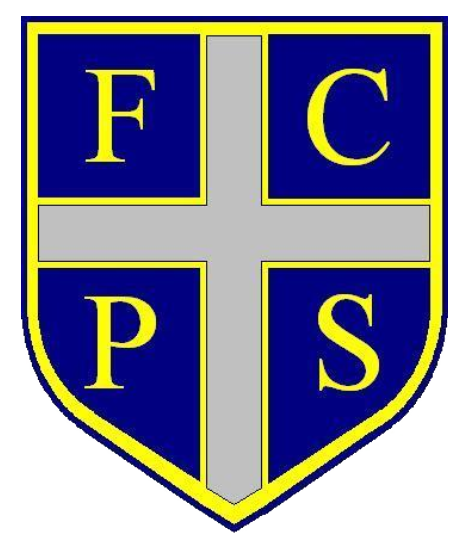Our Early Years Curriculum – Early Years Foundation Stage (EYFS)
In Nursery and Reception, we follow the Early Years curriculum. We have a play based approach to learning and follow the children’s interests. There are 7 areas of learning; 3 prime areas and 4 specific areas. Within these areas of learning are 17 Early Learning Goals which the children work towards throughout the year.
The Prime areas are fundamental and ensure that children can develop in all other areas of learning:
- Personal, Social and Emotional Development
- Communication and Language
- Physical Development
The Specific areas include essential skills and knowledge for children to engage successfully in the world around them:
- Literacy
- Mathematics
- Understanding the World
- Expressive Arts and Design
Curriculum Intent
At Fellside Community Primary School, the EYFS curriculum is designed to encourage independent, inquisitive and happy learners. We recognise children’s prior learning and starting points, and create a holistic curriculum that capitalises on real-life experiences and builds strong foundations for their future. Our Early Years foundation stage curriculum is specifically designed to provide children with important foundational skills and knowledge that will later be enhanced and embedded in Key Stage 1 and beyond.
Every child is recognised as a unique individual, and we acknowledge and promote children’s interests to provide them with the opportunities to follow their imagination and creativity and their curiosity for the natural world around them through a careful balance of adult-led and child-initiated teaching and learning. In Reception, our 7Cs Learning Values and our Character Compass are also introduced and we invest time into helping children to recognise their personal goals and aspirations for themselves and for their learning. The characteristics of effective learning in the EYFS thread through all areas of learning and are a fundamental part of children’s development at Fellside. As such, our curriculum is designed to provoke motivation, engagement, making links to learning and problem solving.
Curriculum Implementation
Pupils learn through a balance of child-initiated and adult-directed activities and challenges. The weekly timetables are carefully structured so that children have opportunities for rigorous directed teaching in English, mathematics and phonics every day. Children are also provided with opportunities to explore, be challenged and engage with the provision that is available to them in the indoor and outdoor classrooms, both which are set up to support development of all aspects of the EYFS curriculum. Half-termly topics, broad themes that are progressive across Nursery and Reception classes, capitalise on the resources available on site and within the immediate locality. Topics such as ‘Me and My World’ and ‘Growth and Change’, for example are designed with enough flexibility to be able to capitalise on children’s interests and they (and our other topics) afford many opportunities to promote development of relationships; communication and language; and gross/fine motor skills.
Attaining skill in early reading and phonics is at the heart of our curriculum. Children follow a highly engaging synthetic systematic phonics programme (Little Wandle for Letters and Sounds) to support them in meeting strong outcomes in reading with the expectation that almost all children will then go on to pass the Year One phonics screening check. Ours is a rigorous and sequential approach aimed at promoting the foundations for fluency and comprehension. A raft of high-quality texts (including poetry and songs) has been carefully selected to integrate our ‘reading for pleasure’ agenda. High quality guided reading sessions in Reception class is enhanced further by provision of fully decodable phonics reading books for use as home readers.
We promote a mastery approach in mathematics in Reception with an emphasis on acquisition of key skills in number, calculation, shape, space and measure so that pupils develop deep understanding alongside demonstrating understanding of mathematical language. Pupils learn through games and tasks using concrete manipulatives which are then rehearsed and applied to their own learning during exploration and in adult directed activities. These collaborative and practical mathematical experiences are carefully designed to help pupils remember the content they have been taught and to support them with integrating their new knowledge across the breadth of their experiences and into larger concepts. Teaching mathematics in such a kinaesthetic, practical way supports children in their latent skill in problem solving, able to demonstrate resilience and justification when learning. This approach ensures children are well prepared for their learning journey through Key Stage 1 and beyond.
Our inclusive approach means that all children learn together, however we also use a range of additional interventions to support the learning of children who may not be reaching their potential, or to move children who are experiencing difficulties to make progress. ‘Keep up’ phonics sessions, additional guided reading sessions, support in handwriting and 1:1 sessions to address misconceptions in mathematics are examples of typical interventions that are a feature of our curriculum implementation.
Curriculum Impact
The impact of our Early Years curriculum is that we have bright, articulate, happy and well-rounded children who are well on their way to continuing their educational journey in Year 1 when they complete their Reception year. They have a secure understanding of mathematical and scientific concepts; they are on their way to achieving fluency when reading and possess a love of stories, songs and rhymes. Their learning is ‘dovetailed’ to that which awaits them in Year 1, thereby providing a trajectory for consistent progress. Fellside children also learn to value the investment they make in friendships and they are begin to embody our school values, reflect our aspirations for their future and for the next stage of their education.
Our Curriculum Overview for Early Years (Reception Class and Nursery)
Our Half-termly Curriculum Units of Learning in our Reception and Nursery Classes.
